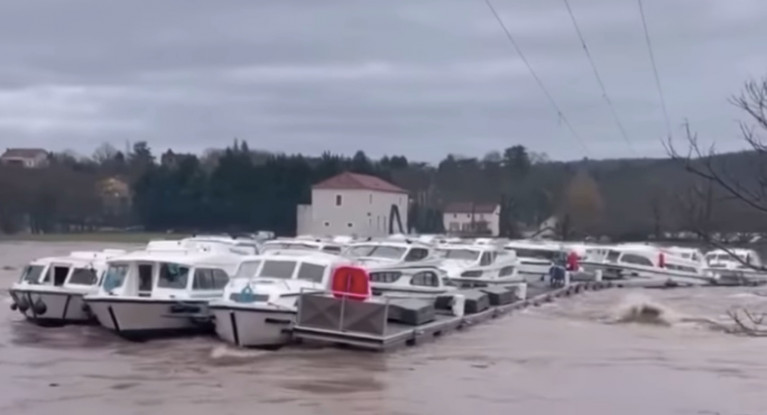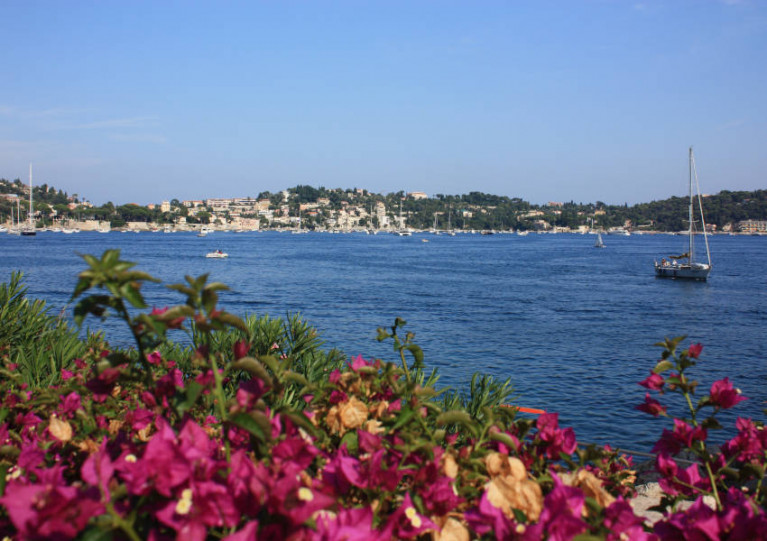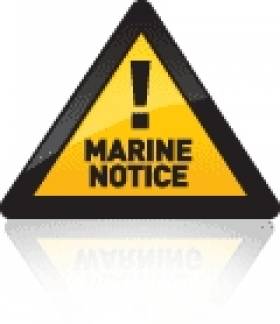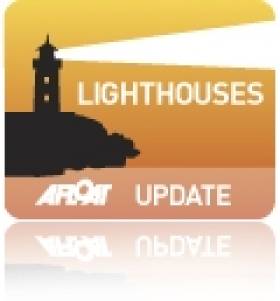Displaying items by tag: France
Planned French military exercises near Irish waters have been halted, the Foreign Affairs Minister has confirmed.
But as TheJournal.ie reports, Simon Coveney stopped short of declaring the drills cancelled outright or merely postponed, telling the Dáil today (Thursday 23 June) “that’s a matter for France”.
West Cork fishers and marine conservationists had raised concerns over the scheduled live-fire manoeuvres, which had originally been planned within the waters of Ireland’s EEZ this week.
The Irish South and West Fish Producers Organisation welcomed a subsequent relocation of the French naval exercises.
However, the Irish Whale and Dolphin Group warned that marine wildlife in Ireland’s waters would remain vulnerable to the impact of detonating missiles at sea.
TheJournal.ie has more on the story HERE.
French military exercises near Irish waters which began yesterday (Tuesday 21 June) could have a significant impact on marine wildlife, says a marine group that’s called for a halt to the manoeuvres.
The exercises, which are taking place over a number of days this week, have already been relocated out of Ireland’s EEZ, as the Irish Examiner reports — though the French Embassy said in a statement that “a small piece of the southern extremity of Ireland’s EEZ” may be affected.
After voicing their concerns over the planned live-fire drills off Ireland’s Southwest Coast, West Cork fishers welcomed the changes.
Patrick Murphy, chief executive of the Irish South and West Fish Producers Organisation — which is leading calls for a moratorium on military drills within the EEZ — said: “We don’t agree with these exercises but this was the best scenario we could have reached and we did it within 24 hours.”
However, as TheJournal.ie reports, the Irish Whale and Dolphin Group (IWDG) has warned that marine wildlife in Ireland’s waters remains vulnerable to the impact of detonating missiles at sea, which may “cause a large sound wave which can esonify a wide area with a massive acoustic shock wave”.
TheJournal.ie has more on the story HERE.
Irish vessels and crew have been warned over safety risks associated with a French military exercise off the South West Coast next week.
Marine Notice No 38 of 2022 from the Department of Transport gives details of the planned rocket-firing exercise in part of Ireland’s Exclusive Economic Zone (EEZ), which is currently scheduled for Thursday 23 to Saturday 25 June but may be postponed until a further date before Thursday 7 July.
“Given the nature of the planned exercises, vessels and crew are advised of safety risks in the operational area,” the notice adds.
Earlier this year, Russia sparked controversy when it announced plans for a similar firing exercise within the Irish EEZ. Those exercises were relocated after the Irish fishing industry voiced its concerns to the Russian ambassador, as previously reported on Afloat.ie.
Further details of this exercise, including coordinates, can be found in the Marine Notice attached below.
Chaos outside Paris’ Stade de France at the Champions League final is leading this morning’s headlines — and among the fans in the city were a group of resourceful Liverpool supporters who travelled part of the way by speedboat.
As the Liverpool ECHO reports, Paddy O’Toole said friends’ original travel plans appeared to have been scuppered by the cancellation of their EasyJet flight to Paris for the crunch football final.
After dashing from Liverpool to London, the group managed to get on a flight from Heathrow to Jersey in the Channel Islands, where Paddy lives, but that still left them hundreds more kilometres short of the French capital.
Boss way to get to Paris @LFC pic.twitter.com/1YKGFRelDx
— Paddy OToole (@morefootie) May 27, 2022
Enter Paddy’s friend Garry Brennan, whose local business has a fleet of motor vessels including the 12-person RIB that carried the intrepid group to the French mainland on Friday (27 May) in plenty of time to join thousands of other Liverpool away fans.
The Liverpool ECHO has more on the story HERE.
Blaze Destroys Motor Yacht on Charter Off South of France
Video footage shows what’s left of a luxury motor yacht after it was destroyed by fire off the south of France.
As Marine Industry News reports, the 29m Sanlorenzo yacht Reine d’Azur had been on a charter trip off the Îles d’Hyères when the fire broke out in the early hours of yesterday morning (Wednesday 11 August).
Local news reports say all seven guests and three crew were safely evacuated from the vessel and the blaze was brought under control shortly after 10am. The cause is as yet unknown.
Elsewhere, a yacht from the iconic Preini Navi shipyard ran aground on the Italian island of Stromboli, north of Sicily.
The 24.2m sailing yacht Malizia, built in 1989 for Prince Rainier III of Monaco, was seen today (Thursday 12 August) half submerged as its hull lay propped up on the rocky shore.
Marine Industry News has more on the story HERE.
Video Shows Cruiser Fleet Carried Away Amid Severe Flooding in France
Dramatic footage has emerged of what’s purported to be a Le Boat cruiser fleet as its carried away in swollen rover waters amid severe flooding in southwestern France.
A video compilation posted on social media shows how at least one vessel was lost as it capsized after hitting a bridge, while another was apparently destroyed at a weir.
Severe flooding was reported throughout the wider region of Lot-et-Garrone after the country was hit by Storm Justine earlier this week and experienced days of torrential rain.
As Euronews reports, the town of Meilhan-sur-Garrone was almost entirely submerged as the Garrone, a major river in the region, burst its banks.
The first phase of Spain’s transition towards its ‘new normal’ amid the ongoing coronavirus pandemic saw boat owners yesterday (Monday 11 May) allowed to set their vessels free from moorings, as International Boat Industry reports.
‘Non-commercial cruising’ in limited groups, such as a family or people who share the same address, is limited to local waters only.
But the move will come as a relief to many recreational boaters who had been kept away from their vessels under a 50-day lockdown, one of the most restricting in Europe along with Italy.
Boat charter and rental is also permitted under the latest relaxing of regulations, with further allowances — to move outside of one’s municipality for safety and maintenance checks, for instance — expected to come with the next phase on Monday 25 May.
Neighbouring France has followed suit with its own easing of lockdown measures, which allow for navigation and mooring within 100km of home port with no more than 10 passengers on any vessel.
But the entry of vessels with a foreign flag from a port outside the Schengen zone into French territorial waters, if the destination is a port on the French coast, remains prohibited until at least next month.
And Spain’s border remains closed to all non-essential travel, with a 14-day quarantine mandated for anyone entering the country.
Marine Notice: Geophysical Survey In Celtic Sea
#MarineNotice - The latest Marine Notice from the Department of Transport, Tourism and Sport (DTTAS) advises that Osiris Projects were last week scheduled to begin marine survey operations off the south coast in the Celtic Sea.
The marine surveys will extend from the shoreline at two locations in Co Cork across the sea to the shoreline at two locations in northern France.
The survey was set to start on Monday 1 June 2015 to last for approximately three weeks, weather permitting. The survey will be conducted by the MV Proteus (Callsign 2HBL7).
The marine surveys will extend from the shoreline at Ballinwilling Strand (main route) and Ballycroneen Beach (alternative route), across the Celtic Sea, passing the Isles of Scilly, to the French coast west of Roscoff at Moguériec (main route) and Pontusval (alternative route).
The corridor width for each landing will be 250 metres from the high water mark to the 10-metre contour, then the corridor will widen to 500m as the route moves to France.
The survey vessel may be found running both along the corridor, and in the general vicinity of the survey corridor. The survey areas are small boxes which are shown in the detail plan HERE.
Survey operations will involve towing survey equipment on and below the water surface, up to 300m behind the vessel. All vessels, particularly those engaged in fishing, are requested to give the MV Proteus and her towed equipment a wide berth and keep a sharp lookout in the relevant areas.
Full co-ordinates for the relevant work areas are detailed in Marine Notice No 25 of 2015, a PDF of which is available to read or download HERE.
#Lighthouses - Check out this amazing video (care of the Irish Coast Guard's Facebook page) of daredevil lighthouse keepers changing shift off the coast of France.
With the rough seas far too choppy for boats to move in close to the rocky island beneath the lighthouse, the only option is to zip back and forth via a rope thrown from the tower secured to the vessel.
That's one job that's definitely not for the faint-hearted!
Kitesurfing Adventurer Plans Crossing From France to Ireland
#Kitesurfing - Bruno Sroka aims to complete an epic solo journey from France to Ireland on his kitesurfing board, powered only by the waves and the wind.
As Surfer Today reports, the French kitesurfer - who already has a crossing of the English channel to his credit - has set himself the challenge next month of surfing from L'Aber-Wrac'h in Brittany to the south coast of Ireland, a distance of some 240 nautical miles.
And it will be just the first of three adventures Sroka has lined up for himself, as he aims to follow this feat with a crossing of the Mediterranean in 2014, and finally the mighty Atlantic Ocean in 2015.
Indeed, his ambitious plans do little to dispel the impression that kitesurfing is a sport for the bravest alone - even too dangerous for the Olympics!
Surfer Today has more on the story HERE.



























